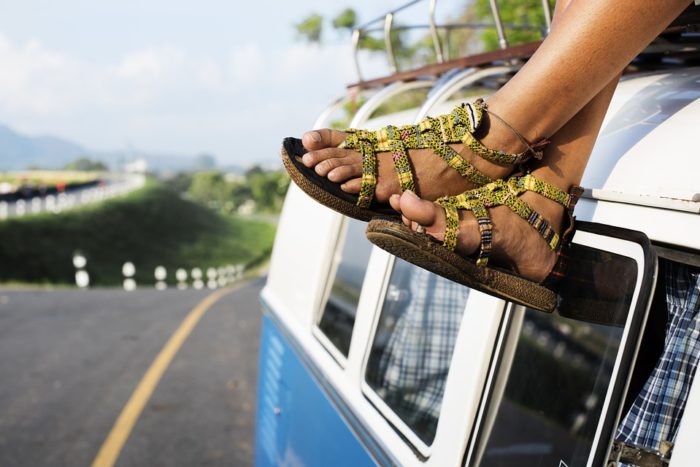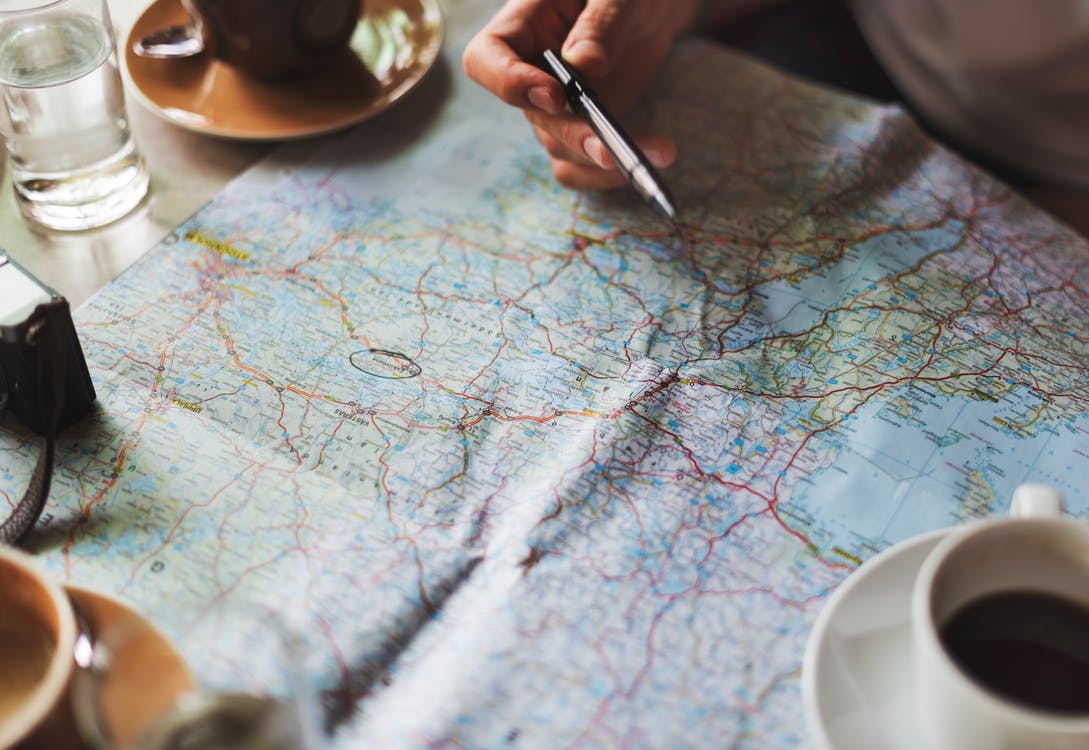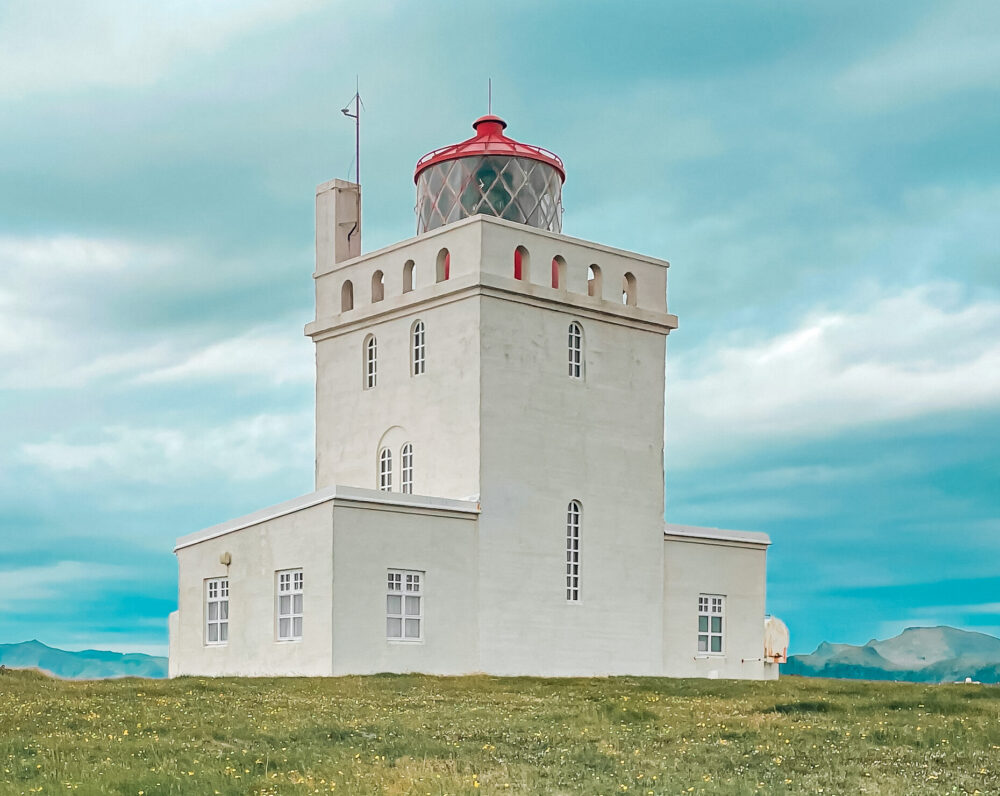Like so many other things, Generation Y has had a substantial impact on the auto industry. We don’t make a lot of money, which means if manufacturers want us to buy, they have to give us more affordable options. Furthermore, we truly care about the planet, so we want new vehicles to be eco-friendly (there’s just no excuse anymore). However, despite these changes — and what some “experts” say — one thing millennials haven’t killed is the great American road trip.

Last weekend, I decided to head to the Oregon Coast to enjoy some sun and surf. I was surprisingly excited to spend 14 hours (round trip) in the car alone, as I was expecting a smooth journey with plenty of time to take in some good audiobooks. Unfortunately, my trip was anything but smooth — in fact, it was a downright disaster. But now that I’m safe at home again, I can look back at the road trip from hell and acknowledge that it was definitely a learning experience.
Here’s just a sampling of some of the things that went wrong, and how you can avoid suffering the same fate:
1. Make Sure Your GPS Works (and Have a Backup)
For the past six months, the GPS on my iPhone 6 has been buggy. While slightly irritating, I’ve stayed in town the whole time and haven’t really had any reason to use it — which is probably why I totally forgot it was having this problem until I was already well on my way to the coast.
I pulled over in a small town somewhere just west of the border between Idaho and Oregon and began frantically Googling a fix. I toggled my locations services on and off, downloaded a different maps app, and even did a hard reset of the phone. No dice. After a little more searching, I discovered that this was a common issue for the 6, and that there was no way to fix it. Resigned, I googled the nearest T-Mobile store and went to buy a new phone.
Of course, without any GPS, I had to drive all over the damn town to find the place.
Lesson Learned: One, always make sure your GPS is working before you leave home. Two, bring a map for emergency purposes. While I’m not quite a digital native, I’ve been relying far too heavily on technology as an adult — and technology doesn’t always work.

2. Research the Safety of Your Route
After securing a new phone — with working GPS — I headed to Eugene to pick up a friend and then to Newport. Because my GPS had failed so early in the trip, I stayed on the interstate. This, combined with an hour at the T-Mobile store (as well as driving in circles around an unfamiliar town), added an extra five hours to my trip. By the time we checked into our hotel, we’d lost an entire evening of our already short vacation. It was a pretty big bummer.
With the ridiculous length of my initial trip still fresh in my mind, I mapped out the quickest route home that Sunday. Unfortunately, what I didn’t know was that said route was incredibly dangerous at night — inky darkness, high-speed limits, unmarked turns, suicidal wildlife, open range, etc. I almost hit a deer and nearly drove off the road more times than I can count. What’s worse, after miles and miles of blackness and dashed lines, my eyes began to play tricks on me. I was seeing things that simply weren’t there.
It was so bad that once I pulled into my driveway back home, I had to take a few minutes to breathe deeply and unclench my hands from the steering wheel. I swear my knuckles are still white …
Lesson Learned: Before taking an unknown route, research it ahead of time so you know what to expect along the way.
3. Tell Loved Ones What Route You’re Taking and When to Expect You
Before leaving Newport, my friend and I decided to take a boat tour of the Yaquina Bay. This set our departure time back a few hours, so I texted my dad to let him know I’d be home a little later than planned. However, I didn’t text him when we actually left, nor did I give him a rough idea of when to expect me. This ended up being an issue.
One of the dangers of the route I took home was that about 95 percent of it was out of cell tower range. I had no way to contact anyone, and they had no way to contact me. As more and more issues presented themselves along the way home, I realized that, should anything go wrong, no one knew where I was, and I couldn’t call for help.
Meanwhile, my father was frantically texting me. He knew how unlike me it was to not check in. Furthermore, having a vast knowledge of the region, he was terrified I’d taken the most dangerous route home — and damned if I hadn’t. Once I finally made it back into cell range, all of his frenzied texts came through at the same time. As scared as I’d been for myself, I realized that fear must have been compounded for him.
Lesson Learned: Always, always, ALWAYS tell someone what route you’re taking and when to expect you to reach your destination. If we’ve learned anything from “127 Hours,” it’s this.
4. Make Sure to Bring Plenty of Food, Water, and Medicine
You know what I don’t have in my car? An emergency kit. Yes, I realize now how completely stupid this is. I mean, I was smart enough to service my car before leaving, but accidents and severe weather still happen, and I was totally unprepared. Should I have been stranded out there in the high desert (with no phone service), I would have been in big trouble.
Lesson Learned: Pack and carry a fully stocked emergency kit in your car at all times.
5. Have Plenty of Entertainment on Hand
Before I left for the coast, I loaded up my phone with enough audiobooks to keep me happy the entire trip. I figured it was all the entertainment I’d need. What I wasn’t counting on was getting a new phone and losing said audiobooks. Lack of cell service in the vast wasteland I drove through on the way home kept me from accessing Spotify, I didn’t have any CDs in the car, and the radio signal was so patchy that you couldn’t keep a station going for more than a minute or so.
I had a lot of time to sit in silence and contemplate all the things that could go wrong out there.
Lesson Learned: Bring more forms of entertainment than you think you’ll possibly be able to use — trust me on this, the silence can be ominous.

Thanks to all this nonsense, my vacation was about as relaxing as a trip to the dentist. However, much of the trouble I encountered was brought about by my own stupid mistakes. I’ve learned a lot from these blunders, and I hope by telling this story, I can help others avoid the same frustration, anxiety, and outright terror that I experienced.
Safe travels, my friends!
What are your tips for planning a successful road trip?
Also by Liz: Tiny Houses, Scandi Design. Why Are Millennials So Obsessed With Minimalism?
Related: 4 Ways To Nix Travel Anxiety & Globe-Trot Like A Wellness Jetsetter
8 Essential Tips For Traveling The World When You’re A Recent Grad On A Budget
Get more like this–sign up for our newsletter for exclusive inspirational content!
__
Photo: Pexels, Matthew Henry on Unsplash




